Additive Manufacturing 4.0: Metal Fusion
Within the industrial landscape, the adoption of Additive Manufacturing is providing companies with innovative, customised and technologically advanced solutions to meet the shifting demands of their customers.
By creating metallic objects by adding the material layer by layer, instead of using the techniques of casting, moulding, cutting and other traditional methods, this advanced manufacturing approach makes it possible to customize the final product according to the needs of the sector and the customer.
Here the SPRI Group, together with the BDIH and its Advanced Manufacturing node, describes the main advantages and characteristics of one of the most relevant metal product manufacturing techniques, metal fusion, and a selection of the capacities available in the Basque Country to experiment with these techniques.
First of all, it is important to clarify the concept of additive metal manufacturing; a process used through which three-dimensional objects are created from a digital product or file. Metal Fusion is an “additive” technology that works by melting very thin layers of metal powder using a laser, known as selective laser melting (SLM) or direct metal laser sintering (DMLS). The metal powder spheres are fused locally at the point of impact of a laser beam. When they solidify again, they form a horizontal layer and fuse together in the lower layer.
Why is Metal Fusion of interest to manufacturers?
Metal Fusion makes it possible to test and validate new geometric shapes on a smaller scale before progressing to mass production, reducing the risk of errors and retooling and in turn leading a greater success in production. At the same time, it validates the procedure to ensure that it complies with all manufacturing stages in a similar and symmetrical way and is also capable of producing per unit on demand.
Some of the main advantages of using this additive metal manufacturing technique, include the ability to create components with a high level of internal and external complexity and the capacity to create functional parts adapted to the latest needs of your sector or customer; it also allows for thermal regulation of the part to obtain the desired geometry and the production of unique and geometrically advanced parts.
The Basque Country has been at the forefront of integrating technologically advanced solutions into its industrial system over the last decade, and additive metal manufacturing is one of the technologies that the Basque industrial system is incorporating. To this end, the members of the BDIH make their experience and equipment available to Basque SMEs to make the incorporation of these technologies easier.
From CEIT, the Basque industry has access to its Multifunction Laser Cell designed for two types of applications: additive manufacturing of metal parts by means of the LMD (Laser Metal Deposition) process and laser post-processing of manufactured parts. The services offered include:
- The design/redesign of parts for additive manufacturing using LMD.
- The possibility of testing new technologies for additive manufacturing, heat treatments and surface finishing in the laser cell.
- The creation of demonstrators and prototypes that explore the capabilities of additive manufacturing in terms of design, properties and new functionalities.
- The optimization of process parameters and the optimization of metal powder for LMD.
On the other hand, LORTEK has an Additive Manufacturing Cell by SLM for the application and integral development of metal additive manufacturing in powder bed fusion technology. The main services offered include:
- The design and development of new products (including topological optimisation and integration of functions).
- The identification of value-added products that can be manufactured by means of SLM; topological optimization allowing the use of an open platform to develop parameters and processes for new materials.
- Testing of novel ICT systems related to the simulation or other aspects of pre-processing or post-processing in a controlled environment prior to their commercial introduction.
- Simulation by means of FEM (Finite Element Method) of behaviour in environments with thermal stresses generated in the SLM process, implementing vector elements (edge-based elements) that efficiently model the behaviour of electromagnetic vector fields and the prediction of distortions prior to manufacture to avoid defects.
Here is just a sample of how the BDIH’s Additive Manufacturing node allows Basque companies to incorporate new models, concepts and techniques in the way they produce their parts and products.If you’re interested in exploring what the node offers, follow this series of articles on Additive Manufacturing 4.0 where we tell you in detail what its capabilities, assets and services are in a practical and personally tailored way.
Contact the BDIH to find out how we can bring your company closer to the solutions that interest you most.
Related news
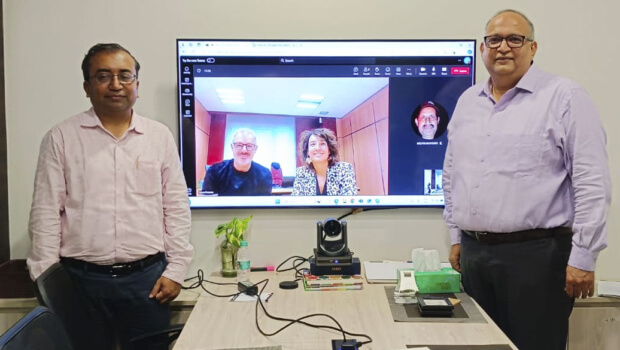
SMARTPM and SubAero Precision Machining announce strategic partnership in India
The collaboration between SMARTPM and SubAero Precision Machining (Group Designcell) is a big step in our global growth, helping us establish a strong foundation in one of the world's fastest-growing industrial markets
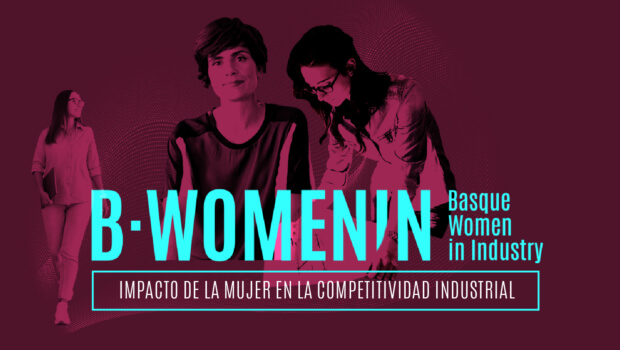
Companies with greater gender equality perform better in terms of innovation and are more competitive
The study of the SPRI initiative "Women in Industry" shows that gender equality has an impact on the improvement of company results.
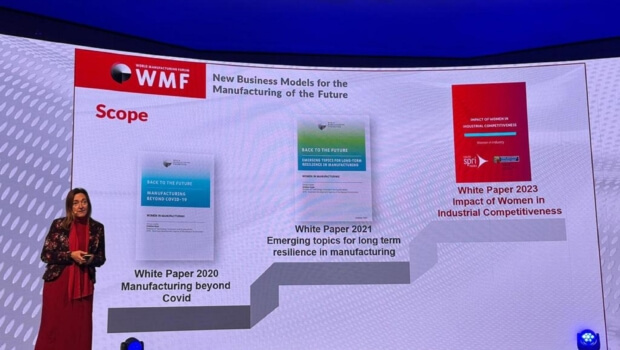
SPRI presents the results of the study on the impact of women on industrial competitiveness at the World Manufacturing Forum
The reports is the continuation of the work carried out by the SPRI Group and the Foreign Network office in Milan since 2020 as leader of the Women in Manufacturing expert group.
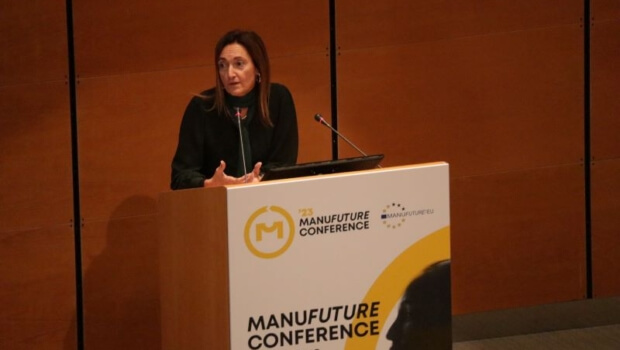
Europako fabrikazio-ikerketaren etorkizuna
Donostian, egunotan, MANUFUTURE Conference 2023 egiten ari da, hau da, fabrikazio-industriaren etorkizunari buruzko Europako konferentzia.
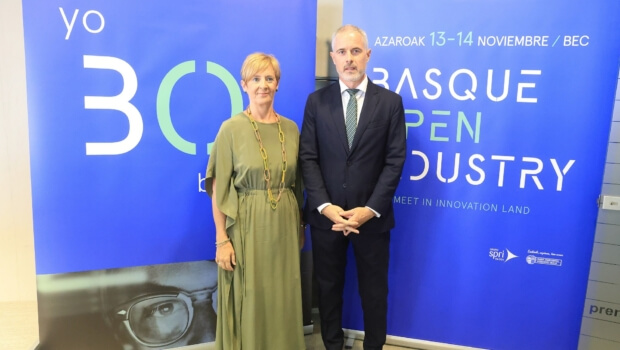
Basque Open Industry will show Europe its industrial and technological ecosystem at the European SME Week (SME Week) from 13 to 17 November.
Talent, internationalisation, energy-environmental and technology-digital transitions. SME Week 2023. Exhibition and stands at the BEC: “Rebuild Ukraine”.
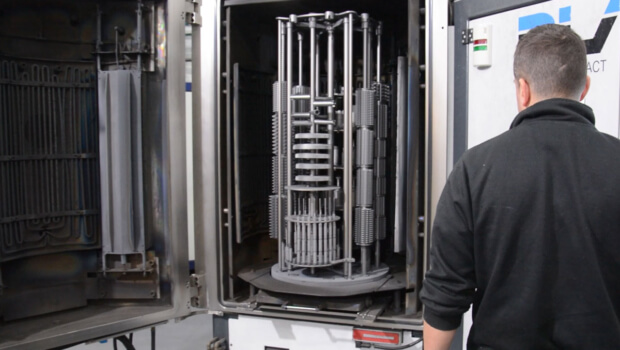
Get to know the assets of the BDIH: 5-axis multi-process milling cell, capable of very high speed operations
The University of the Basque Country offers Basque companies, via the BDIH, the possibility to have at their disposal a 5-axis multi-process milling cell, capable of very high-speed operations.
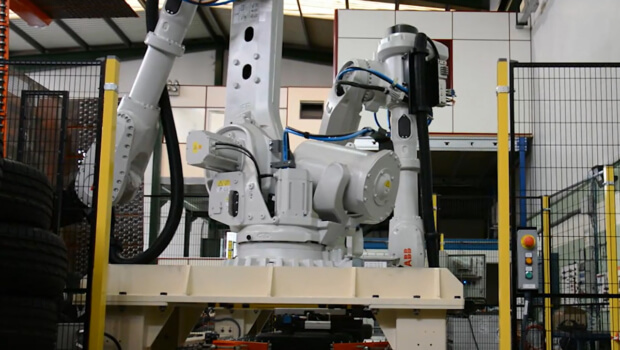
Get to know the assets of the BDIH: Inspection/measurement robotic cell using non-destructive techniques
Tekniker gives the opportunity to Basque companies, by means of the BDIH, of having at their disposal a cell which permits to carry out analysis for the quality control and the non-destructive inspection of pieces.
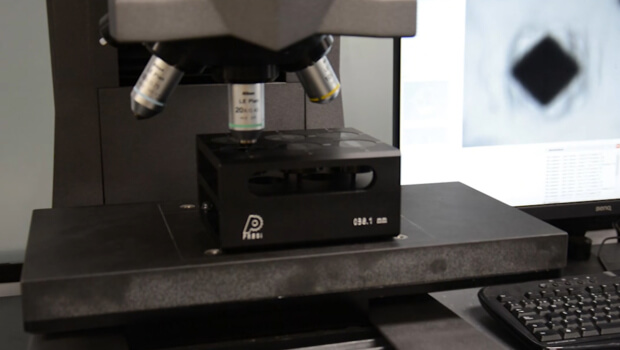
Get to know the assets of the BDIH: Equipment/Techniques/Methodologies for the study and evaluation of corrosion
Cidetec offers Basque companies, through the BDIH, the possibility of testing their materials with in the order to know their corrosive capacity. For this purpose, the asset uses accelerated and cupro-acetic corrosión climatic chambers, as well as electrochemical and localized techniques for the corrosion studies.
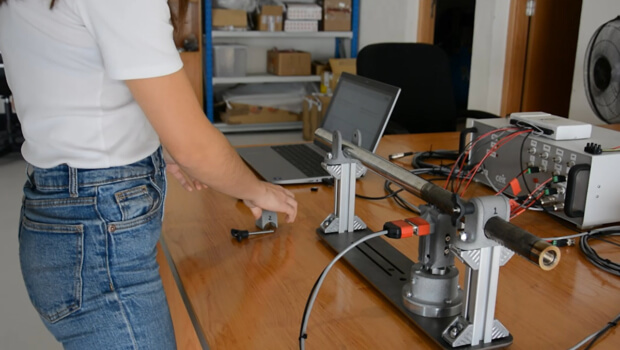
Get to know the assets of the BDIH: Systems for mechanical properties and microstructure determination by magnetic non-destructive measurements
CEIT offers companies, through the BDIH, the possibility of access to quality control systems to detect failures or inspect subsurface processes in a non-destructive manner, allowing costs to be reduced and avoiding wasting parts that could be sold
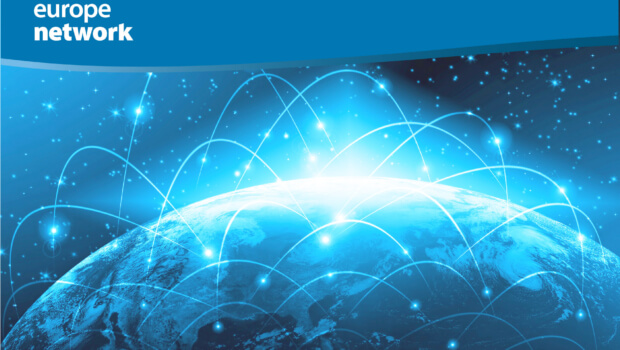
The Enterprise Europe Network offers Basque companies advice on technological development and the international commercialization of innovative products and services
The Enterprise Europe Network (EEN) has established itself as the perfect public sector tool to complement the efforts of Basque companies in internationalizing their R&D&i and their business in general. Through its advisory and assistance service in the transfer of knowledge, technology and innovation, more and more SMEs are seeing...

